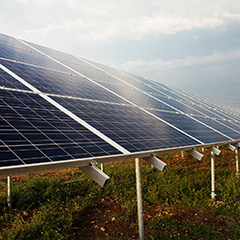The energy system is undergoing unprecedented transformation, fuelled by factors such as technological developments, geopolitical shifts and environmental concerns. According to the World Economic Forum, decentralisation is one of the key trends that will accelerate the transition to sustainable energy supply. Decentralisation is often referred to as ‘energy democracy’, as it aims to increase popular participation while advancing renewables as the new source of energy. Here Matthew Stone, chairman at energy decentralisation experts Nextgen Nano, explains why decentralisation will transform the energy sector.
An effective energy transition must integrate the three main faces of the energy triangle: environmental sustainability, security and access to resources and economic development. More than 860 million people in developing and underdeveloped countries lack access to energy, according to the World Economic Forum findings, meaning that the demand for secure and affordable power is increasing. At the same time, the findings suggest that people in those countries can ‘leapfrog’ to the final stage of the energy transition, without experiencing the damaging effects of traditional energy. One viable way to do so is through decentralisation and implementation of innovative technologies.
Decentralised energy is generated close to where it will be used, rather than at an industrial plant that is then sent through the national grid for distribution. Decentralised systems typically use renewable energy sources, such as combined heat and power (CHP) biomass and wind or solar power.






























